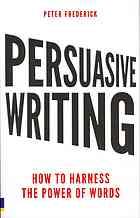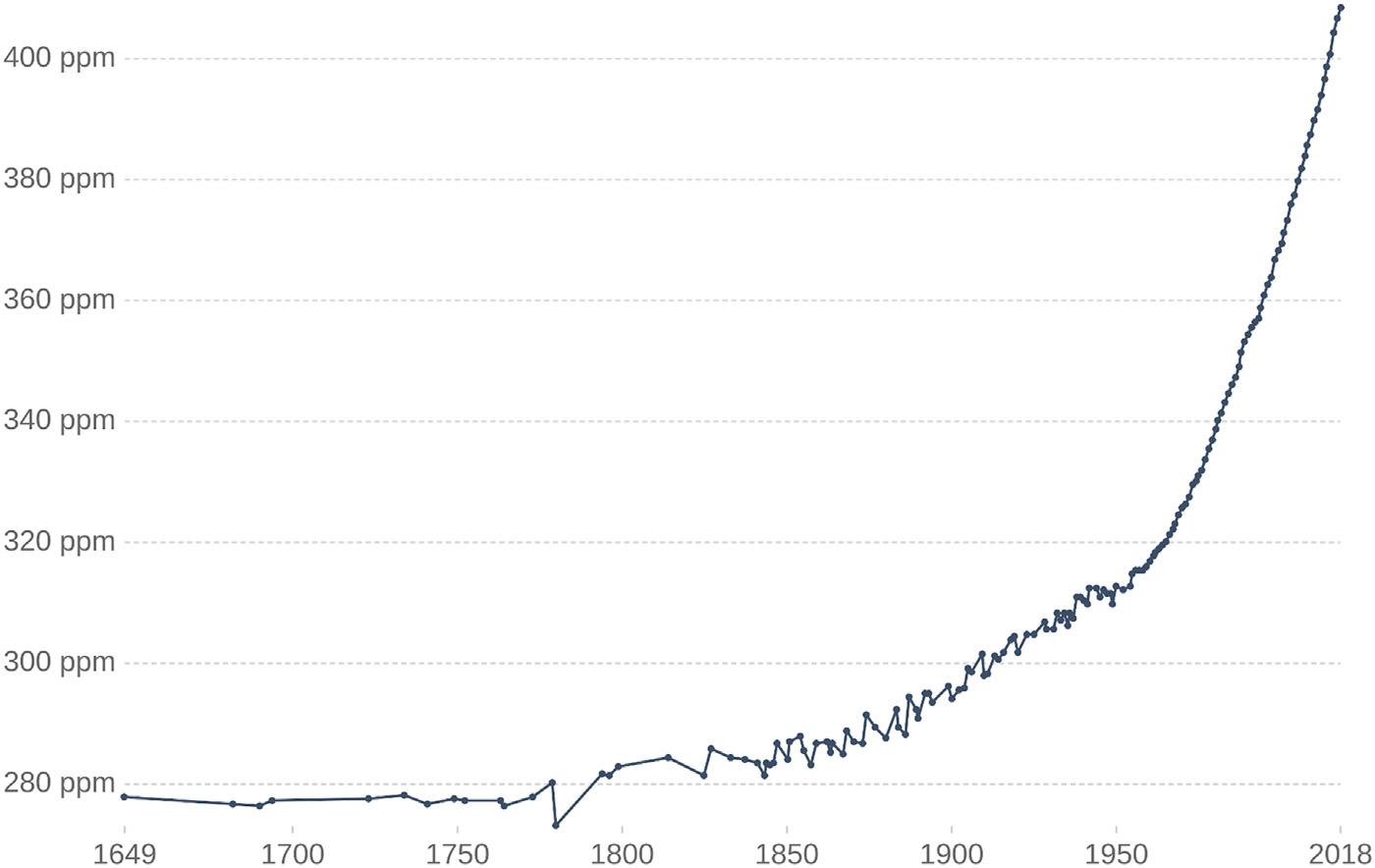Listofcontributors
RamyE.Ali FraunhoferInstituteforSolarEnergySystemsISE,Freiburg, Germany
EleonoraBargiacchi DepartmentofEnergy,Systems,TerritoryandConstructions Engineering,UniversityofPisa,Pisa,Italy
DmitriBessarabov HySAInfrastructureCentre,North-WestUniversity, Potchefstroom,SouthAfrica
DanieleCandelaresi DepartmentofCivilandMechanicalEngineering,University ofCassinoandSouthernLazio,Cassino,Italy
SudiptaChatterjee KAUSTCatalysisCentre,KingAbdullahUniversityof ScienceandTechnology,Thuwal,SaudiArabia;DivisionofPhysicalScienceand Engineering,KingAbdullahUniversityofScienceandTechnology,Thuwal,Saudi Arabia
IndranilDutta KAUSTCatalysisCentre,KingAbdullahUniversityofScience andTechnology,Thuwal,SaudiArabia;DivisionofPhysicalScienceand Engineering,KingAbdullahUniversityofScienceandTechnology,Thuwal,Saudi Arabia
ChristopherHebling FraunhoferInstituteforSolarEnergySystemsISE,Freiburg, Germany
Kuo-WeiHuang KAUSTCatalysisCentre,KingAbdullahUniversityofScience andTechnology,Thuwal,SaudiArabia;DivisionofPhysicalScienceand Engineering,KingAbdullahUniversityofScienceandTechnology,Thuwal,Saudi Arabia
MengNi BuildingEnergyResearchGroup,DepartmentofBuildingandRealEstate, TheHongKongPolytechnicUniversity, HongKong,P.R.China;Environmental EnergyResearchGroup,ResearchInstituteforSustainableUrbanDevelopment (RISUD),TheHongKongPolytechnicUniversity,HongKong,P.R.China
KingsleyOnyebuchiObodo HySAInfrastructureCentre,North-WestUniversity, Potchefstroom,SouthAfrica
x Listofcontributors
MohamedOuda FraunhoferInstituteforSolarEnergySystemsISE,Freiburg, Germany
CecilNaphtalyMoroOuma HySAInfrastructureCentre,North-WestUniversity, Potchefstroom,SouthAfrica
Andra ´ sPerl HanzeUniversityofAppliedSciences,Groningen,TheNetherlands
Jo ¨ rgSauer InstituteofCatalysisResearchandTechnology(IKFT),Karlsruhe InstituteofTechnology(KIT),Eggenstein-Leopoldshafen,Germany
AchimSchaadt FraunhoferInstituteforSolarEnergySystemsISE,Freiburg, Germany
MalteSemmel FraunhoferInstituteforSolarEnergySystemsISE,Freiburg, Germany
GiuseppeSpazzafumo DepartmentofCivilandMechanicalEngineering, UniversityofCassinoandSouthernLazio,Cassino,Italy
HaoranXu StateKeyLaboratoryofCleanEnergyUtilization,Zhejiang University,Hangzhou,China;DepartmentofChemicalEngineering,Loughborough University,Loughborough,UnitedKingdom;BuildingEnergyResearchGroup, DepartmentofBuildingandRealEstate,TheHongKongPolytechnicUniversity, HongKong,P.R.China
Preface
Thetransitionfromfossilfuelstorenewableenergysourcesisincreasinglydesired, butafurtheraccelerationwillonlybepossibleifthestorageproblemissolved.In fact,almostallthesesourcesarecharacterisedbyintermittentavailabilityandgenerallydonothavetheirownstoragecapacity.
Thefinalusesofenergyaremainlysatisfiedbyelectricityandfuelswithan averageratioof1:4.Withthecurrenttechnologies,themostwidespreadrenewablesourcesgeneratealmostexclusivelyelectricity.Eveninthecaseofagreater useofelectricityintheupcomingyears,fuelswillremainthepredominantenergy carrier.
Thankstoitscharacteristics,hydrogenseemstobethebestcandidatetohelp electricityasanenergycarrier.Itdoesnotcontaincarbonandcanbeeasilyproducedfromelectricityandconvertedbackintoit.Itcanalsobeproducedfrombiomassandwastematerials,anditisbetterthanelectricitywhenitisnecessaryto storeenergyinthelongrunandinalargeamount.Therefore,itqualifiesasthe idealpartnerforrenewablesources.
However,thedevelopmentofanenergysystembasedonhydrogenthatisable toreplacecommonlyusedfuelsstillfacesobstacles.Fromatechnicalpointof view,on-boardstorageanddistributionstillrepresentabottleneck.
Hydrogen-poweredvehiclesarenowequippedwithtanksthatcontaincompressedgasupto700bar.Despitethehighpressure,thesetanksarestillconsidered toobulky,butthealternativeshaveproveduncompetitiveorarestillintheresearch anddevelopmentphase.
Hydrogenisnowdistributedbytanktrucksorproducedon-site,butforitslargescaleuse,itwillbenecessarytoarriveatasystemsimilartothatusedfornaturalgas.
Fromaneconomicpointofview,therequiredinvestmentsareenormous,bothby thosewhowillundertaketheproductionanddistributionofhydrogenandbythose whowanttouseit.Iftheend-userfaceshighprices(e.g.,tobuyacarwithfuel cells),therewillberiskstolimitthehydrogendemandandnoonewillundertaketo produceanunder-demandedgoodinlargequantities,justasnoonewillspendmoney tocreateadistributioninfrastructurethatwillbeunderused.Incentivesmaycome fromthegovernmentsofmanycountries,buttheymaynotbesufficient.
Thesolutionmaybetotakeonestepatatime.Thefirststepcanbethatofproduction,sincewithoutproductiontherecanbeneitherdistributionnoruse.Thekey pointmightbetocreateagreathydrogendemandwhich,however,willnotbeused inpureform,atleastinthefirstmoment.Inthisway,investmentswillbeconcentratedontheproductionplants,whileatthesametimeresearchwillkeepdeveloping toovercometechnicalobstaclesandtoreducecostsfortheend-user.
Ofcourse,hydrogenshouldnolongerbeproducedfromfossilfuelsasitisdone currently.Indeed,itshouldreplacecommonlyusedfuels.Thisispreciselytheconceptofpower-to-fuel:convertingelectricityproducedfromrenewablesourcesinto hydrogen.Furthermore,atleastfornow,usinghydrogentoproducesyntheticfuels iscapableofreplacingtraditionalfuelswithoutrequiringmajorchangestothedistributioninfrastructureandend-useequipment.
Suchastrategywouldallowasignificantincreaseinthehydrogendemandand consequentlyasignificantincreaseintheuseofrenewableenergysources. Therefore,power-to-fuelseemstobethemostreasonablewaytowardsafastdecarbonisationoftheenergysystem.
Thisbookaimstopresentthemostpromisingtechnologiesthatrespondtothe conceptofpower-to-fuel.Thesyntheticfuelscoveredinthisbookcanbedeployed withoutmajorchangestotheexistinginfrastructureandcanbeusedinexisting equipmenteitherdirectlyorwithminimalchanges.Somecanalreadybeusedin directfuelcellstodaywithouttheneedforanexternalreformingprocess. Moreover,allofthemarehydrogencarriers.
Chapter1isanintroductiontotheconceptofpower-to-fuel.Itisdividedintothree mainsections.Initially,theissueofcarbondioxideemissionsintotheatmosphere andtheneedforatransitionfromfossilfuelstorenewableenergysourcesare addressed.Thissectionhighlightstheexistingobstaclestoafurtherspreadofthelatterandindicatesthesolutionofpower-to-hydrogeninthelongterm.Thesecondsectionliststhecharacteristicsofhydrogenandbrieflydescribestheproduction processesstartingfromthemostvariedprimarysourcesofenergy.Thecurrentobstaclestoarapidtransformationoftheenergysystemtowardstheonebasedonhydrogenarethenhighlighted,andthepathofitsusetoproducesyntheticfuelsis indicatedasviable.Finally,themainsyntheticfuelssuchasmethane,methanol, dimethylether,ammonia,ureaandformicacidwhichcanbeobtainedbyapplying theconceptofpower-to-fuelarebrieflydescribed.
Itisnoteasytogodirectlyfromelectricitytoasyntheticfuelandthereforethe firststepofapower-to-fuelprocessisthepower-to-hydrogencarriedoutthrough theelectrolysisprocess.Untilnow,electrolysishasbeenconsideredanicheprocess, forsmallflowratesorforhighpurities.Now,however,newhorizonsareopening upthankstothedesiretodecarbonisetheenergysystemandthereistalkofmultimegawattinstallationsandbeyond.
Low-temperatureelectrolysisisdiscussedinChapter2.Fundamentalsofwater electrolysisandmodellingofthereactionmechanismoftheoxygenevolutionreactionbothinacidicandalkalinemediaareaddressed.Inaddition,abriefoverview ofrecentdevelopmentsinlow-temperaturewaterelectrolysisisincluded.Different modellingtechniquesapplicabletoelectrocatalystsintheoxygenevolutionreaction arepresentedatmacroscopic,mesoscopicandmicroscopiclengthscale.Asection ofthechapterisdevotedtoiridiumanditsoxidesincrystallineandamorphous phasessinceIr-basedcompoundsaretypicalmaterialsfortheoxygenevolution reaction.
Chapter3dealswithhigh-temperatureelectrolysisthatisbasedonasolidoxides electrolyte.Inthefirstsection,theprinciplesofthesolidoxideselectrochemical
processarepresentedindetail.Inthenextsection,thedirectproductionofasyngas ispresented.Suchasyngascanbeproducedbymeansoftheco-electrolysisof waterandacarbonsource.Finally,thelastsectiondealswiththeproductionofa syntheticliquidfuelbycombiningaco-electrolysisprocessofwaterandcarbon dioxidewithaFischer Tropschprocess.
Directinjectionofhydrogenintothenaturalgaspipelinesrepresentsavery interestingoptiontostorealargeamountofenergy.However,therearetechnical andcommerciallimitstotheamountofhydrogenthatcanbeintroduced.Chapter4 isthenregardedasoneofthemostpromisingandefficientpathwaystostore energythroughthepower-to-fuelconcept.Itisthesimplestprocessthatallowscarbonutilisationtoproduceasyntheticfuel.Naturalgasisalreadywidelyusedin industryandintheresidentialsector,andinthetransportsectorinsomecountries aswell.Thereforetheimplementationofpower-to-substituteofnaturalgasona large-scalecouldallowavastandfastdecarbonisationoftheenergysector.Both chemicalandbiologicalmethanation,includingthestate-of-the-artandliterature studies,arepresentedindetailwiththeirmostimportantfeaturesandoperational parameters.Acomparisonbetweendifferentavailabletechnologiesiscarriedout withanoutlookonpower-to-methaneplanteconomy.Finally,aninsightonsubstitutenaturalgasproductionfrombiomassgasificationandelectrolytichydrogenis proposed.
AnotherinterestingalternativeisdiscussedinChapter5.Methanolisavery importantrawmaterialinthechemicalindustryandcouldbealsousedasasubstituteforliquefiedpetroleumgasanddieselfuel.Methanolhashistoricallybeenproducedstartingfromsyngasthatismainlycomposedofcarbonmonoxideand hydrogen.However,todayitsproductionfromcarbondioxideandhydrogenseems moreinteresting.Thesetwoprocessesaredescribedandcompared.Inaddition,two innovativetechnologiesarealsomentioned,namely,co-electrolysisandbiological oxidationofmethane.
Chapter6dealswithpower-to-dimethylether(DME)whichisanotherliquid productwithabroadspectrumofapplicationsnotonlyasafuelbutalsoasacompoundforthechemicalindustryandasachemicalbuildingblock.Nowadays,DME isproducedfromnaturalgasorcoal,butitcanbeproducedfromcarbondioxide andhydrogen.State-of-the-artandemergingDMEproductionpathwaysarepresentedindetailwithaparticularfocusontheinfluenceofarenewableproduction basedoncarbondioxideandhydrogen.Thelastsectionalsoreportseconomic insightsintoapower-to-DMEprocess.
AmmoniaandureaareexaminedinChapter7.Ammoniaisheavilyusedinagricultureasafertiliserandintheindustryasarawmaterialfortheproductionofvariousorganicnitrogencompounds.Thecurrentindustrialammoniaproductionis dominatedbyfossilenergysources.However,itshighhydrogencontentandits establishedinfrastructureforbothstorageanddistributionmakeammoniaaprominentcandidateforstoringfluctuatingrenewableenergy.Thetraditional Haber Boschprocessconsistingofaheterogeneousreactionofhydrogenandnitrogenonaniron-basedcatalystcanbecomegreenandcarbon-freeifrenewableelectricityisusedforhydrogengeneration.Basarovreactionisinsteadusedtogenerate
urea,whichisanotherpotentialhydrogencarrierhavingtheadvantagetobesafer becausesolid.
FormicAcid,discussedinChapter8,isanotherpromisinghydrogenenergycarrierthankstoitshighvolumetrichydrogencapacityandlowtoxicityandflammability.Inthepasttwodecades,greatprogresshasbeenmadeinboththeuseand productionofformicacid.Importantdevelopmentsinbothhydrogenationandelectrochemicalreductionofcarbondioxideforformate/formicacidsynthesisarepresentedhere.Also,considerationofformicacidcostproductionandobservationson futurechallengesandopportunitiesarereportedattheendofthechapter.
Chapter9reviews48pilotanddemonstrationworldwidepower-to-Xprojectsin whichthehydrogenispartiallyortotallyproducedthroughelectrolysis.Thefirst threesectionsreportthespecificfeaturesofthemostrelevantpower-to-methane, power-to-methanolandpower-to-ammoniaplants.Thefollowingsectionspresent ananalysisoftheplantdata,whichincludesthenumberofprojectspertechnology, theaverageandtotalinstalledpowerbasedontheelectrolysersizeandtheproject geographicaldistribution.Regardlessofthefinalproduct,itispossibletoobtaina faircomparisonbetweendifferentpower-to-Xplantsonthebasisoftheelectrolyser size.
InChapter10theauthorstriedtogivearoughideaofthepotentialpenetration ofpower-to-fuelinthemarket,fromaperspectiveofcompletereplacementoffossil fuelswithhydrogenand/orsyntheticcarbon-neutralfuels.Startingfromananalysis ofworldenergyconsumption,thepotentialglobaldemandforhydrogenandother syntheticrenewablefuelsnecessaryforacompleteenergytransitionwascalculated, withafocusontheirapplicationinvarioussectors,suchasindustrial,transport, buildingandelectricitygenerationsectors.
Toconclude,Iexpressspecialthankstoalltheauthorsfortheirexcellentcontribution.Also,manythanksmustbeaddressedtoalltheElsevierstaffforthegreat workinhelpingusduringallthevariousstepsforrealisingthisbookinthebest possibleway.
GiuseppeSpazzafumo
1
DanieleCandelaresiandGiuseppeSpazzafumo DepartmentofCivilandMechanicalEngineering,UniversityofCassinoandSouthern Lazio,Cassino,Italy
Sincethediscoveryoffire,manhaslearnedtousefuels:byswitchingfromwood tocoal,tooilandfinallytonaturalgasandincreasingenormously,atthesame time,theglobalfuelconsumption. Fig.1.1 showsastheresultingCO2 emissions ledtheatmosphericconcentrationtomorethan400ppmandthiscouldbethemain causeofglobalwarmingandclimatechange.Today,effortsarebeingmadefrom anincreasingnumberofcountriestoreduce,andpotentiallyeliminate,theuseof fossilfuelsthroughtheuseofbiofuelsandhydrogen.Hydrogenisanimportant feedstockgasinindustrialapplications(BessarabovandMillet,2018).Itisgenerallyproducedthroughsteammethanereforming(SMR),whereaselectrolytichydrogenproductionhasbeenconsideredanoptionforsmallflowsofhydrogenorfor highpurityhydrogenrequiredbynicheapplications.
Therenewableenergysources(RESs)withthehighestpotentialaresolarand wind,andluckily,thecostofenergygeneratedfromtheseRESsisconstantly decreasing.However,theyproduceelectricpowerwhichcoversonlyaround20% ofthefinalenergydemand.
Electricity,althoughitwasdiscoveredbytheGreekThalesofMiletusinthe4thcenturyBCE,hasenteredintouseonlyinrecenttimes.Inthesecondhalfofthe19thcentury, withtheinventionofthedynamobytheItalianAntonioPacinottiandwithitsindustrialisationcarriedoutby theFrenchmanZe ´ nobe-The ´ ophileGramme,theconversionfromfuel toelectricitybegan.Andeversincethenthedirectionoftheprocesshasbeenthis.
Todaythereversalofthedirectionoftheprocess,thatisfromelectricitytofuel, iscarefullyconsidered.Thereasonliesontheonehandintheneedtoreplacefossil fuelswithrenewableandcarbon-neutralfuelsandontheotherhandwiththedifficultyofstoringtheelectricityobtainablefrommostRESs.
1.1Renewableenergysourcesandenergystorage
Unlikefossilresources,RESsarewellspreadontheplanetandthisisundoubtedly agreatadvantage.Unfortunately,thetimedistributionslowsdownthespreadof exploitation.AlmostallRESsareinfactcharacterisedbyarandomavailabilityaccompaniedbythelackofintrinsicstoragecapacity.Actually,apartfromlargehydropower, onlygeothermalenergyoffersconstantavailability,whereastidalenergyisvariable, PowertoFuel.DOI: https://doi.org/10.1016/B978-0-12-822813-5.00005-9 © 2021ElsevierInc.Allrightsreserved.
Globalmeanannualconcentrationofcarbondioxideinatmosphere(OurWorld inData,2020).
butitsvariabilityisforeseeable.Biomasscanbestored;however,thesourceswhose exploitationshowsthemostfavourablediffusiontrendaresolarandwindpower,which generateelectricityandarecharacterisedbyintermittency,withaconsequentmismatch betweenproductionanddemand.Moreover,alocalsurplusofelectricpowercouldnot becompletelytransferredtoanotherregionduetoprobablegridinstabilityproblems. Thiswillforcetofindanenergystoragesolutiontoallowthecontinuousreplacingof fossilfuelswithrenewableandnonclimate-changingfuels.
Thereforeelectricityfromsolarandwindcanbefedintothegridonlyifthereisan effectivedemandandifthequalityoftheenergyproducedissuchasnottojeopardisethe stabilityofthegriditself.Otherwise,itisnecessarytoaccumulatethesurpluselectricity.
Intheeventthattheproblemliesinthelackofelectricitydemand,itisstillpossibletotransferthesurplustocentralisedstoragesystems,suchaspumpingstations.If,ontheotherhand,theinabilitytotransferelectricitytothegridislinked tothepoorqualityoftheenergyproduced,thenitisnecessarytoincreaseinsome wayitsqualityortostoreenergyon-site.
Unlikewindpower,forsolarenergy,thereis,atleastinperspective,thepossibilityofdirectconversiontofuelbymeansofthermochemicalcyclesfortheproductionofhydrogen.Unfortunately,thisisaprospectthoughtupabout60yearsago andnotyetinviewofapracticalapplication.Over100differentthermochemical cycleshavebeenconceived,butonlyafewarestillbeingstudied,forexamplethe sulphur-iodinecycle(MathiasandBrown,2003).Initiallydesignedtostorethe energyproducedbynuclearreactors,thesecyclesarenowalsostudiedforsolar energystorage,forexamplethezincoxidecycle(Weidenkaffetal.,2000).
Figure1.1
3 Introduction:thepower-to-fuelconcept
Electricitycanbeeasilystoredinrathersmallamountandforshortperiods,whereas themostpromisingsystemforstoringlarge quantitiesofenergyoverlongperiodsseems tobetheconversionofthesurplusofelectricityintohydrogenbymeansoftheelectrolysisprocess.Hydrogencanalsobeusedinallthoseapplicationsorsectorswhere,for technicaloreconomicreasons,electrificationisdifficultornotconvenient,thusallowing toincreasethepenetrationofRESinthemarket.Furthermore,hydrogencouldplayan importantroletoachieveagreaterenergysystemintegration,creatingnewlinksbetween differentsectors,energycarriersandinfrastructures,whichtodayareseparatefromeach other.Thiswouldresultinamoreinterconnected,flexible,efficientandcleanerenergy system(Fig.1.2).Finally,electrolytichydrogenproducedfromRESpowercanalsobe usedasabasistoobtainavarietyofchemicalsandsyntheticcarbon-neutralfuels,such asthosethatwillbepresentedinthefollowingsections.
1.2Power-to-fuelroleintheenergytransition
Thehydrogenatomconsistsofasingleprotonandasingleelectron,whichhasamass about1800timeslowerthanthatoftheproton.Theatomicweightis1.00794amu. Theradiusoftheorbitoftheelectronisabout100,000timeshigherthantheradius oftheprotonand,therefore,thespaceoccupiedbytheatomispracticallyempty.
Figure1.2 Hydrogenasanenablingchemicalforsectoralintegration:variousexamples. Source:CourtesyD.Bessarabov,HySA.
Another random document with no related content on Scribd:
CHAPTER XVI
After Nancy's departure, the ceremonies again could take their appointed course. The firecrackers blazed and snapped, the little horns, with voices like thin piping clarionets, again commenced their weird din, the trumpets blew; away went the trays, with Nancy's own bright gift, to the home of her future husband. Now came men who wore scarlet sashes, to bring the large red document revealing in its eight gold characters the celestial ordinance beneath which Ming-te had been born; two others took away with them Nancy's eight characters, putting her destiny eternally into the keeping of her betrothed.
In these things Nancy took no part. She returned to the garden and listened to the exulting turmoil with ears that understood its meaning less than the resonant whisper of the pines. The flowers, nodding together their many-colored heads, made her homesick for the mountains and summer sunshine. She wondered where her poor token would go, her golden-hued chrysanthemums, her one small effort to ask pity and love from a youth she had never seen. Would those unvalued blossoms come by some extreme chance to his eyes and tell him that she had sent them? No, he would not see the flowers; they might have fallen bedraggled into the streets; he could see only the gaudy, costly things, the silk, the cloth, the slippers, things the t'ai-t'ai had got ready without any reference to her. He had sent her no token, no sign, just inanimate rubbish. And yet it was this cold stranger who was receiving the precious eight characters, the red cards Nancy knew with a superstitious shudder were being taken away like some virtue gone out of her.
Nancy contemplated these matters with a gentle bitterness. From years back this hour had been inevitable; perhaps she had been spoiled by its having been so long delayed. She could not complain, but her heart was sad, filled with foreboding of that second more sinister hour when she must be locked into the scarlet bridal chair. When that hour should come, whether
soon or late, she had no clue. But she was betrothed; it must come in the end. She must walk now a straitened path, never again to see Elizabeth and Helen—or Mr. Nasmith, never again with the heart to fling cones from the high branches of the pines upon her laughing, vexed brother.
Winter came; the garden was parched and bleak. When the children went out to play in the cold dry sunshine they wore thickly padded garments which transformed them into stuffed dummies, a misshapen caricature of the cool clean limbs and lithe bodies that had made the pine tree their own kingdom in July.
Nancy accepted her lot. She got great comfort in learning by an indirect message from her father that there was to be no marriage for four whole years. Much might intervene in four years, so she did not demur at the new task of sewing for her trousseau; after the first shock it became like any other sewing and the boy a shadowy, almost legendary, figure only vaguely able to threaten her happiness from a distant horizon.
Herrick alone was morose. He had regretted the engagement before it was made; afterward he regretted it more. He lost sleep. The peace he had hoped to buy became more elusive than ever because all the time Kuei-lien was torturing him by little subtle ironies upon the life to which he was dooming Nancy. Her words came so innocently that the man never guessed the intent behind them. He did know this: that he was a prey to nightmare, to dreams in which Nancy's mother and the amah and Nasmith all were inextricably mixed, the one burden of their tongues and their eyes being the evil he had done. He was becoming a haunted man, and no matter how desperately he might fight to preserve his wits, to keep his mind and his strength for the sake of his children, there was a point beyond which flesh and nerves could not endure; he gave way with a crash, like the rending of a great tree, and for days offered himself to Kuei-lien to be trampled on.
When he emerged, everyone in the house knew that he was a sick man. He did not regain his poise with the old alertness, did not even struggle to regain it, but lay back, shaking, infirm, afraid to move lest he provoke one of his terrible spasms of the heart.
"You are killing him," protested the t'ai-t'ai to Kuei-lien. For so many years she had been used to Herrick's moderate indulgence in opium and kao-liang spirits that she had not realized her husband's self-control could relax with such speed. A hale and hearty old age anyone would have predicted for Timothy Herrick, yet here was death written on his face.
The t'ai-t'ai had not prepared for this. She could not afford to let Herrick die now, with Nancy unmarried, the ten thousand taels undelivered, worse than all, Herrick's fortune, of which no one knew the exact amount, locked up in that mysterious, impregnable place, the English bank, whence only Herrick's magically written slips of paper could draw forth the silver stream. The woman, of course, knew nothing of law or banking practice; of her own accord she would not have trusted a copper behind the brass grille of a bank. If Herrick died, she feared every cent he possessed might be taken out of her grasp. She could not write checks; even for Nancy's dowry she had no security. Her only hopes were to marry Nancy while her father lived and to persuade him into transferring his wealth from inaccessible bank vaults to the tangible form which had served her forefathers, into gold ornaments and pearls, and ingots snugly buried in the garden.
"You are killing him," she warned Kuei-lien. "A man of his years cannot stand these excesses."
"Oh," said the concubine, with a touch of insolence she had never shown before, "do you credit me with being the mistress? If my master commands, what can I do but obey? His is the will, not mine."
The t'ai-t'ai opened her ears at this tart remark. She looked narrowly at Kuei-lien, wondering whether this last and least of her husband's concubines were using her favor to rob an infatuated man. The shrewd suspicion entered her mind that Kuei-lien was utilizing these frenzies of sordid passion, when Herrick's senses were bemuddled, to extract money from her master, to extract those formidable little slips of paper.
"Well, you may rest for a while. Your master is too sick for excitement. I will look after him," she said.
Kuei-lien nodded and withdrew.
"I shall have to send her away or sell her," thought the t'ai-t'ai. "This kind of business can't go on."
She took rigorous charge of her husband, put him in bed, administered homely Chinese medicines, refused to let anyone see him. So languid was Herrick's mood that the man acquiesced, only complaining in an occasional peevish sentence because Kuei-lien had not come to see him. During the stupor which possessed him the t'ai-t'ai found it easy to get his keys and she pulled out the check book in which she had seen him write. It had been his habit to draw out limited sums each month, giving the checks to be cashed by an old and recognized servant. The woman took the book, looked at the stubs crosswise and upside down, but could make neither head nor tail of them. Finally she sought Edward's help.
"Your father is not well and wants you to help me with some business," she explained. "Will you read what is written here."
After some confusion between the numbers of the checks, the dates, and the sums, Edward found the gist of the story the stubs told and soon was able to translate the monthly record, "To cash, such and such a sum," "To cash, such and such a sum," while the t'ai-t'ai noted the figures in her memory. Then appeared what she suspected, checks for sums she had never received. They began in the summer and continued through the autumn. She had Edward repeat them again and again till the figures were printed indelibly on her mind.
The t'ai-t'ai pondered this new problem at some length. She was quite certain that Kuei-lien could not have cashed checks for such large amounts without enlisting the help of her husband's old messenger. This faithful man had been associated so invariably with the process of getting money that the woman had come to believe his participation was an unalterable step in the procedure. He was not the man to be bribed in a day; the t'ai-t'ai was reasonably certain of his honesty. The probability then was that Kuei-lien still held the checks and was waiting a favorable chance to exchange them.
When once the t'ai-t'ai had reached this conclusion, her first impulse was to call the concubine to her husband and in her absence to search every corner of her boxes, every corner of her room; if this failed, to summon two
strong servants, strip the girl, and search every article of her clothing. It was probably on her body that Kuei-lien would carry the checks.
"I should have to sell her after that," the woman decided.
Second thought, however, was more deliberate, not from any pity for Kuei-lien, but because there certainly would be scandal; the story would reach Herrick's ears—the t'ai-t'ai could trust her enemies for that—and no one knew what vengeance the man might exact, in his weakened, peevish condition, for the loss of a favorite concubine. Even this the angry woman might have risked, if the thought had not occurred to her that by making terms with Kuei-lien she could use the wiles of the concubine to get even larger sums from her husband, to get the money he always laughingly had insisted was safe, into the only safe form the t'ai-t'ai recognized, the safety of good, tangible silver. Yes, the concubine was worth winning over; she could do this; she might even persuade the old man to allow an earlier marriage for Nancy.
The t'ai-t'ai went to Kuei-lien's room and found the concubine seated cross-legged on the k'ang, the brick oven which served for divan and bed. She was smoking cigarettes, her incessant habit. At the t'ai-t'ai's entry, however, she jumped up, brought her mistress to the k'ang, and only after repeated urging by the t'ai-t'ai consented to sit on the warm rush mats beside her. There was much desultory talk during which the older woman searched Kuei-lien's appearance with keen eyes to see if she had acquired any unusual jewelry; Kuei-lien was fastidiously dressed, rather daringly, with short full trousers barely topping a startling length of cerise stocking, but there were no signs of jewelry. This was some evidence that the checks had not been cashed. Finally, when the time seemed ripe, the t'ai-t'ai became more direct in her speech. She had steered the conversation to the subject of Herrick's ill health.
"It is a pity he will go to these excesses," Kuei-lien agreed. "I can do nothing to stop him when the passion comes over him. Hai—at times I am afraid. He becomes like a madman and strikes me if I try to take his opium pipe away."
"Does he ever pay you for these blows?" asked the t'ai-t'ai shrewdly.
Kuei-lien winced a little.
"Oh yes, he pays me," she laughed, "pays me with bruises. I will show you my back; it is black and blue."
"He pays you with nothing more substantial?"
"Not even a ring has he given me."
"No, not a ring, but little pieces of paper, little pieces of paper which you have not been able to exchange for money. Wouldn't you like Lao Yang's assistance to cash them?"
Kuei-lien's face grew red with a blush the girl could not check, but she held her body from a second telltale jerk.
"I don't understand what you mean," she said.
"Come now," protested the t'ai-t'ai, "you can't deny that you received checks for these amounts." She reeled off from memory the sums and dates of the checks she was certain Kuei-lien had received.
"What should I do with checks?" asked the girl.
"That's just the point," the t'ai-t'ai smiled in return; "what should you do with them? They are useless in their present form and you will never be permitted to change them."
"I don't know anything about these things," Kuei-lien persisted stubbornly.
"Just think a little," her mistress went on in the same bland voice, "and don't try to keep up appearances before me. Who brought you up, may I ask? Who saved you from being a slattern in the scullery at this very moment? It's worth remembering, because the same person who lifted you to your present favor can throw you down again." The t'ai-t'ai allowed a minute for these words to have their effect while she looked round the room. "You are very comfortable here," she remarked, "you have prospered well for the short time you have been here—well-filled boxes, plenty of
clothes; I have indeed been generous to you. It would be a pity to lose them all."
"They are yours," admitted Kuei-lien. "I have no claim to them. Take them."
"Ah, don't try that game of candor with me," said the woman. "I am not threatening, mind you. I am simply appealing to your reasonableness. I should be sorely disappointed if the protégée over whom I have taken such pains proved to be merely a clever fool. Just let me imagine two pictures for you. On the one hand you cling obstinately to little bits of paper for which you never can get a copper cent. What do I do? I call in two strong men who are waiting outside; they tie a piece of cloth across your mouth so as not to disturb the household unnecessarily, then they twist your arms so— and so; do you think you wouldn't soon be anxious to point out these worthless checks? Or they ransack these boxes, take off these pretty clothes, and cut the linings away with scissors; don't you think we could find them even if you had to stand stark naked watching us? What good would you get of your stubbornness? Just the pleasure of being sold back to be a slave again. That's one picture," concluded the t'ai-t'ai, as though she had been telling a story.
Kuei-lien listened in startled attention, quite hypnotized by the woman's smooth voice.
"Now for the other side, a much more cheerful picture. We'll imagine you giving me these checks. Lao Yang, at my orders, will cash them. Of that money I will give you one fourth. You may think that is too little, but it is more than you could get in any other way; it is much more than nothing. The best part of it is, you have the chance of earning more money on the same terms. It is not wrong. The Great Man is not well, as you know, and he is stubborn about keeping his money in a foreign bank. He thinks he can provide for us in time, but I know his disease: pfui! in a moment he's gone —like a candle blown out. If he dies, what becomes of us? Is it our fault for snatching what safeguards we can? Well, that's the other picture. You may not be contented with a fourth, but you'll like it better than being sold to a brothel. I am not easy with those who betray me."
Kuei-lien showed her mettle by smiling.
"Yes, I do like the second picture better," she said, "it is drawn very well. Do you offer me this picture?"
"I offer it—and I shall add a few more colors on the day Nancy marries my nephew. You have had your own game there, I know," she remarked cheerfully, "but your game is a risky one. I don't blame you for trying your own plans, but you were trying for all or nothing. While I'm here, it would have been nothing."
"I understand," said Kuei-lien. "I accept your offer."
"I am glad my judgment has been vindicated. I had begun to fear you were just like the common trash who remain slaves all their lives. They think they are clever because the cat doesn't stop them when they go to snatch rice from the trap. You are sensible; you understand that there is profit in being grateful."
Kuei-lien answered the t'ai-t'ai by unbuttoning her jacket and loosening her clothes till she could reach the narrow girdle bound next to her skin. Pulling it out, she cut the threads and extracted five folded slips of paper.
"That is the proper number," said the t'ai-t'ai. "I will bring you a fourth of this sum to-morrow. Remember, you have a free hand. I will see that no one interferes with you. Don't be too hasty, don't drive the Great Man to excess; then there should be many more of these."
Calmly she bowed herself out.
CHAPTER XVII
By one shrewd stroke the t'ai-t'ai had regained Kuei-lien's faltering allegiance. She was very happy over the effects of her skill and particularly
pleased at her discernment in the choice of an agent. The concubine had won more than she had lost in the admiration of her mistress. Any ordinary girl, caught thieving, as the t'ai-t'ai termed Kuei-lien's machinations, would have held stubbornly to her story and forced a final violent exposure. It took genius to give way before the inevitable. Kuei-lien had that uncommon genius. So the new alliance thrived on a mutual respect and understanding.
Kuei-lien saw that for the present at least her fortune consisted in loyalty to her mistress. She paid her dividends, as it were, by skillfully teasing Herrick into health and out of it, never letting him lose the need of her or grow sated, and inveigling him more and more easily into the gifts of money which the man granted now almost from force of habit. After the first marked change from the robustness of his former days, there were few further signs of decline. The man was sinking, but sinking imperceptibly. He ceased to see much of his children: he would see them to-morrow,—so he told himself day after day,—but each new morning there was the plea of illness.
The truth was that Herrick was afraid of death, afraid to provoke those terrible spasms of pain which he laid wrong-headedly enough to worry over Nancy's affairs; he was satisfied to stop thinking and surrender to the lulling security of the senses, to a desire for Kuei-lien's presence, which overpowered every thought of duty, every wish. So week by week his strength and his money drifted away; week by week the t'ai-t'ai and Kueilien buried their three fourths and one fourth of his treasure.
They could not wholly conceal their secret. There were others too intimately involved in the state of Herrick's health not to watch jealously the spoils that Hai t'ai-t'ai and Kuei-lien were taking. Nancy and Edward went their way in ignorance, but to the three other concubines it was a matter of life and death. If Herrick died, they would be the property of the t'ai-t'ai without a cent or a right of their own. Time was slipping past. Herrick seemed to have forgotten they existed; he never called for them. Even when the third and fourth concubines bore sons in quick succession, Herrick did not come. The t'ai-t'ai heaped presents upon this auspicious progeny, gave great feasts for each of the babies at the end of their first month, but the father did not appear. He was too ill. The second wife read
the message of this dissimulated kindness and knew correctly that the more the mistress of the household showered them with gifts, the greater wrong she was doing them behind their backs.
At last she saw no recourse except to appeal to Nancy. The English children were the only ones who could demand access to Herrick. With great caution the second wife discarded her old policy of holding aloof from these Westerners, knowing that the t'ai-t'ai might be alive to the first hints of an uncommon friendship. She bided her time till she caught her enemies at a discreet distance, then she came out frankly, volubly, with the whole story of what Nancy's stepmother and fifth wife were managing.
"They are killing your father and robbing him, and they are going to sell you to the t'ai-t'ai's nephew."
"But the t'ai-t'ai and Kuei-lien are not friends," exclaimed Nancy, taken aback by these sudden confidences. "Kuei-lien tried to prevent my engagement—"
"Till she got her price. Now they are fond as thieves. Everybody knows it. None of us is blind except your father. They keep him sick so that they can wheedle money out of him. They will screw thousands of taels out of him for your wedding—that will go to the t'ai-t'ai's family, and you'll be married in a year."
"That can't be. It's arranged that I shall not be married for four years."
"Four years, bah! Don't you think they can persuade a dying man into hastening such a happy event?"
"Surely he is not dying!" she exclaimed in great agitation.
"He is dying," affirmed the woman; "his brain is nearly dead now; his body will soon follow."
Nancy stared with immensely opened eyes as though she saw the whole terrible scene before her. She had forgotten to sit down. Her hands took a firmer grip on the chair behind which she stood.
"What shall we do?" she asked in a strangely quiet voice.
"We!" exclaimed the visitor. "We can do nothing. If the t'ai-t'ai so much as heard that I had been to see you, off she would pack me to-morrow. You have four friends, every one of us helpless. You have two bitter enemies. It is just as much your battle as ours. You can see your father; we cannot. If anyone is to do anything, it must be you."
"Yes, you are right," said Nancy, remembering her encounter with Kueilien in the Western Hills. "I will do something. And no one shall know you asked me."
This interview gave an ultimate touch to the change which the experiences of the last few months had wrought in Nancy. She examined her chances of grief open-eyed, prepared to meet them with the simplicity of courage which came natural to her steady heart.
The first step was to supplant Kuei-lien and the t'ai-t'ai in their dominance over her father. She moved so swiftly that the two conspirators were astonished to find the girl installed in her father's room. Herrick, with pathetic docility, childlike in its readiness to be pleased by trifles, surrendered himself wholly to the mastery of a strong will.
Kuei-lien protested that Nancy would do injury to her father's delicate health by so uncalled-for an intrusion.
"My father is ill," replied the daughter. "It would be wrong for me to waste my time playing when he needs my help. It is time I took some share in my duties instead of leaving all the hardship to you."
"But you have had no experience; you don't know how to take care of him."
"I can learn. He will be glad of a change and so will you."
Kuei-lien knew Nancy's obstinacy too well to waste more time in futile dispute. She hastened to tell the t'ai-t'ai the alarming turn Nancy's action had caused.
"We can't separate them," she exclaimed. "The miserable girl has had her bedding moved into a room next to the Great Man's and says she will live there till he is well. What can we do?"
"We've got to get her married," said the t'ai-t'ai; "there will be no peace till she's gone. Suppose he dies because of her folly; we shall be left like beggars."
"But we can't get her married. She won't obey us. She will obey her father, but she won't listen to us."
"It's my own stupidity," moaned the t'ai-t'ai. "I should never have allowed that old hag of a nurse to remain; I should have taught these two young demons to obey me when they were young. She put these conceited notions into their heads, taught them to lord it over us as though we were dust for their feet to trample. You must persuade the Great Man to hasten the wedding of his daughter; you must find some way. Ah, if I can only get her locked into her red chair and safe in my brother's house, I'll show them how to handle the vixen. She'll be a tamed daughter-in-law if they follow my advice! A stick—that's what the hussy needs, till she's glad to beat clothes at the pond and clean my brother's pipes."
"Very entertaining thoughts," Kuei-lien scoffed, "but not very helpful just now."
They were, in truth, far from helpful. Nancy had learned her lesson and quarantined her father from his too solicitous concubine with the coolness and resource of which she could thank Kuei-lien for teaching her the trick. She would not be enticed from her father's door, and day after day her excuse for this usurpation became greater because it was undeniable that she was nursing the exhausted man slowly back to strength.
At last the t'ai-t'ai had to intervene, an act she was most reluctant to do, preferring always, as a politic woman, to remain in the background. Nancy did not dare to stop her from an interview with her father and retired when she saw that the wife wished to be alone with her husband. For a long time the door remained shut. She could hear the t'ai-t'ai talking indistinguishable sentences in a low rapid voice. Occasionally a laugh was audible. As no
immediate conclusion to this talk seemed likely, Nancy took the chance to fetch some clothes from her room. She was not gone many minutes. To her relief she found the door still shut, and the conversation still continuing. But after an hour the girl became restless. No answer was paid to her knock. She tried the door; it was bolted. Not till she had beaten upon the wooden panels for several minutes did anyone deign to take notice. The door was pulled ajar; the girl saw to her amazement the face of Kuei-lien.
"Your father is feeling better now," said the concubine, "and has sent for me to take your place. He wants you to rest."
"But I don't wish to rest," protested Nancy, "and, if my father gives orders, I take them from him, not from you."
Before Kuei-lien could stop her, she had pushed her way into the room. In the few minutes she had been gone, not only the concubine had been smuggled into the place, but the glasses, bottles, pipe, all the vicious instruments she had been so wakeful to keep out of her father's grasp. For the first time in her life she forgot her father's presence in her rage at the duplicity practised by the concubine.
"This is the way you look after a sick man, is it?" she cried. "Take these things away."
Kuei-lien did not move.
"Have you lost all respect for your father?" she asked in the correct tones of a schoolmistress chiding a naughty pupil. Then she turned to Herrick on his couch. "Now you see what she's like," she said, as if to justify some previous remarks. "Do you wonder that none of us can do anything with her when she tries to rule even her father with these haughty ways?"
"I am trying to make my father well. She is trying to make him ill," groaned Nancy, addressing her father in desperation. Kuei-lien snorted in bitter amusement.
"What profit would there be for me in making him ill? Doesn't my life depend upon his? Do I wish to be turned away like a penniless beggar?"
"This has gone far enough," protested Herrick, rousing himself to the distasteful duty of interference. "You are both wrong to quarrel in this shameless way."
Nancy's self-possession had been too sorely tested in recent days. She could not hold back tears of vexation at hearing her words dismissed as a vulgar quarrel.
"Oh my father, they are killing you, killing you, and robbing you!" she cried.
Kuei-lien scoffed.
"A nice imagination your daughter has," she said. "She has borrowed too many novels from her old amah."
"Isn't it the truth?" demanded Nancy.
"Oh yes, of course it's the truth if you insist upon it. Your father is so helpless, isn't he, that he must need his seventeen-year-old daughter for a nurse to protect him!"
Herrick had grown more and more uncomfortable; this bickering was compromising his dignity, making him a laughingstock.
"Now, now, Nancy," he said soothingly, "you are saying quite unjustifiable things. Your feelings are carrying away your sense of reason. Kuei-lien is right. I am not a child."
"Make her take those things away," Nancy persisted, determined upon one last stubborn appeal. "She is only trying to harm you. I am—"
"Be still," her father interrupted curtly. "I have had enough of this, do you understand? You have done your duty, you have taken care of me when I was ill. But it is no part of your duty to advise your father. Who has been teaching you such presumptuous manners? If I need you again, I shall call
for you; until I do so, I don't want you coming here making these disgraceful scenes. I won't hear of such ungovernable interference with my own will—and that from a chit of a girl."
"Her boldness is becoming intolerable," commented Kuei-lien, as Nancy silently withdrew. This was one word too many for Herrick's ruffled temper.
"I wish you were as honest as she is," he said.
Nancy had won this much of a victory in blighting Kuei-lien's charms for the moment. Deep irritation settled on Herrick at the thought of this wordy brawl between concubine and daughter, a brawl they had waged as though his presence, his judgment, did not matter. They had treated him like a weakling. The irritation stung and rankled because the man knew too well his own cowardice was at the bottom of it, his cowardice and his vanity, which had kept him from supporting Nancy in her appeal to his best instincts. Nancy had said wild things, of course, but there was no doubt she believed all that she had said and it was more than possible that these wild guesses passed for truth in the women's quarters; Herrick had gained insight enough, after his years of multiple weddedness, to know some of the jealous currents that animated the course of life in his household. He did not appreciate a tenth of the actual facts, but he was beginning to see that his wives were not of one mind and that they were subject to natural fears as to what might become of them and their children if he died.
"I'll settle it once and for all," he decided, astonishing the household by calling for his chair. In Peking sedan chairs were becoming out-dated relics of the past; motor cars rushed everywhere and the wide, dusty streets were full of elegant rickshas, commodious enough for the fat officials who sat in stupid composure while their outrunners pushed and shouted a rapid way for them through the traffic. But Herrick would have none of these. He preferred the dignity of his heavy blue chair, which four bearers carried in state while his Chinese secretary, bringing cards, scuffled hastily in his wake.
The chair coolies finally halted before the gate of an ugly building, a grim and cheerless structure imitated in gray brick from the most
disheartening of Western models. Herrick loathed the penal appearance of the place. After some hesitation he sent in cards for Mr. Ronald Nasmith.
CHAPTER XVIII
For a second time, after all his years in Peking, Herrick was denying the sureness of the root which his life had taken in alien soil, by turning to a casually met stranger from the West for help he looked in vain to obtain from his adopted countrymen.
"This is a hideous place," he remarked, scanning the dirty whitewashed walls of the guestroom into which Nasmith had ushered him. "You don't live here, I hope."
"No, thank God."
"This is the blight our Western ways put upon China. How can you instruct students in a hole like this? These places make me more anti foreign than the Chinese themselves. I should like to sweep all of you into the sea; I can see too well the beauty you are desecrating."
Nasmith thought to himself that the reverse might also be true. He had spent an unquiet winter. He had never ceased debating the choice Herrick had given him, as though the offer still lay open for his decision. It was futile, useless debate, a purely academic distraction from which no profit could be gained, yet it continued to wound him. Nancy had cast a spell of vivid charm over all his family; she had won their hearts by an interest which long outlasted the summer, a charm which hung over them like a receding shadow so that they lived almost with bated breath beneath the fascination of her mystery, wondering where she was, what she was doing and—this they felt but feared to mention aloud—what perils she might be facing with the steadfast dark eyes they remembered so tenderly.
Nasmith's particular recollections were still more poignant because Herrick's unconventional offer, the curious phrasing of his scrolls, upon which the offer had shed some light, made him feel that Nancy's life was bound to his by a fateful sympathy which would persist even though it were balked of all real fulfillment. Yet even now, attracted to a Nancy who was almost a legend, he could not make up his mind to accept, if her father renewed the proposal.
He might have spared himself these worries. The older man set that issue at rest by his next words.
"I have come on a matter of business," he said.
"Business?"
"Yes, I want your help in something I have postponed for years, something I hoped I might never have to do: it smacks too much of your dreary Western formality. But I know, now, my mind will be easier when it's done. I want to make my will."
"Aren't there any provisions for a will in the Chinese customs you like so well?" asked Nasmith, smiling ironically as he spoke. "Surely the Chinese, after four thousand years, have devised some way of leaving their treasure behind them. Or have they excelled us again and learned how to lay up their gold and silver in Heaven?"
"Oh, they have their ways," admitted Herrick, ignoring Nasmith's sneer; "the family inherits the money and attends to its just distribution. That is of no use to me, however, for I have no family."
"Haven't you? I thought you were a shining example of the family man."
"Ah, yes; but all women. They would tear each other in pieces if I put any money in their hands. It's only men who can manage these matters."
"Yes, it is a misfortune that you should not have been born Chinese. That would have solved many difficulties. But what advice am I worthy to
give you? If you, with all your years in China, can't leave your money satisfactorily, how can my limited experience be of use?"
"I am not seeking advice; I want you to be my—what do you call it?— executor, and keep my will, and see that my property is fairly distributed. I seem bound to ask favors of you. This is no easy one, I know, but perhaps it is easier than the last. If I live long enough, it may cost you no trouble at all."
"If you don't?"
"Then I admit frankly you will have the devil of a time. You'll have to apportion certain sums, which I shall specify, among several women, each of whom will think you are robbing her. But, once you've done it, you're rid of them. They can gamble away their share in a night if they wish without your being under any obligation to interfere. I don't expect you to take this trouble without being paid for it; I insist upon that, though I know that will not be a consideration to you if you really wish to help me; but I wouldn't ask my own brother to make so large a gift of his time and patience without some reward, so please don't protest. Your most exacting burden will be keeping an eye upon my boy, Edward. If he's twenty-one before I die, well and good: you'll have no responsibility. If he's younger, he'll need some direction."
"What about Nancy?"
"Ah, Nancy—she is arranged for; I won't bother you with that responsibility again. She is to get her share when she's married."
"Married!"
"Yes, I've found a good husband for her. How could I rest easy with that responsibility on my mind? Let's hope, my dear sir, that when you're married you will have only sons. You'll have more sleep, less worry. It is too great a strain to have the future of growing daughters on one's mind."
"But when is she to be married?" asked Nasmith, trying to keep his voice level.
"That I can't say. Not for four years, I hope. You remember the terms you found too extravagant. If I find my strength failing, I shall hasten it. If anything should happen too suddenly, that is, if she should fail to be married before I die, then I shall have to ask you to hand over her marriage portion. But I shall leave no stone unturned to spare you such a disagreeable necessity."
"Then she is to marry a Chinese?" asked Nasmith, scarcely brave enough to hear the answer.
"She is engaged to a Chinese."
Nasmith did not pursue this topic further. There were too many thoughts to be uttered; he did not know which to select. The shame, the wrongfulness of the father's action choked him, but he remembered that he had been warned. He had refused his chance and felt honor-bound not to protest, now that Herrick had disposed of his daughter in a way which seemed to him so utterly appalling. He knew, also, how unavailing protests would be, how deaf the ears upon which they would fall. A betrothal in China was too binding, too sacred a compact to be dissolved by the persuasion of a moment. So he kept silent, preferring not to waste words.
Disappointment over Herrick's relentless execution of a threat he himself never had taken seriously made him all the more willing to accept this second trust the man had sought from him. He would be able to follow events in this weird family, still more to assume some responsibility for them; perhaps Nancy's tragic case was not hopeless—some stubborn cell of his brain would not be reconciled to accepting it as hopeless—he might yet, he must, have his part to play, his chance to intervene. In one breath he prayed that Herrick might live to be ninety and that Nancy's affianced bridegroom be struck down by all the plagues of the East.
"This time," he told Herrick, "I can help you. I shall be glad to act as your executor, but I hope the necessity of doing so may never arise—at least not for many years."
"Thank you," said Herrick gravely, "you have taken a great load off my mind. Now we must have witnesses, and the will, of course, must be left
with you. It would never do to put it where others can tamper with it."
"I can get witnesses: Mr. Beresford should do, and my brother-in-law— he is a banker. I am sure he will be useful."
"Good. Can you bring them to my house? Here is my card. I will write the address in English, if you wish. Could you come, say, at five tomorrow?"
"I am sure we could."
Herrick departed, greatly pleased at the granting of his request and not without regretful thoughts over having lost what seemed a predestined husband for Nancy. What, after all, was the training he had boasted of giving his daughter? Months had gone. Except during his spell of illness, he had scarcely seen the girl. He began to feel that he had sacrificed her for an inconsiderable point. The thought was too painful. It was better to be philosophic, to say that what was to be would be despite all the evasive twistings of little human schemes. With this comfortable casting of his burden upon fate Herrick went to sleep and did not waken till he felt his chair settle on the pavement of his own courtyard.
Promptly at five the next day Nasmith with his two witnesses drove up the narrow hutung to Herrick's star-studded gate. His news had caused a great outcry at home. He had kept in confidence the story of Herrick's offer of betrothal and how the father had threatened to marry his daughter to a Chinese. No hint had been suggested to break the shock of this grievous information. So stunned were his sister and nieces by an arrangement which seemed both wanton and abominable that Nasmith, to his own bitter amusement, found himself defending the father, trying to convince his outraged relations that there was nothing unnatural in betrothing to a Chinese a girl who had been trained, all her life, to Chinese manners, Chinese ways of life. He was a lame advocate and could only listen, with a disheartened smile, to the dozen wild plots for saving Nancy which were bandied round the table.
"If she ever has a mind to it, she will save herself," was the best comfort he could offer.
"Do you know the way Chinese women save themselves?" asked his brother-in-law grimly. "At the bottom of a well."
Nasmith cheerfully would have strangled Mr. Ferris for this ill-chosen remark.
At five the next day Herrick received his three guests. They went curiously through the draughty hallways, the wintry courtyards, to the room their host had prepared for them.
"Here is the document," he said, offering them a piece of carefully inscribed foolscap. "Will you read it? I think it is properly phrased. I spent twenty years in the Customs, you know, and did my turn at writing dispatches."
The three men scanned the paper and could pick no flaw in its wording. Nasmith did begin to protest that he wanted no executor's fee, but Herrick overruled him. After repeated scrutiny Ferris and Beresford signed their names as witnesses. Even Beresford's lips failed of their customary joke at the solemn moment when Herrick handed to his executor the will, which seemed the last seal on a life that had failed. Nasmith took it with trembling hands.
"Now, my friends, to be more cheerful," said Herrick, "we must celebrate the occasion with a feast."
The banquet, it seemed, was ready. In a neighboring room the surprised men found the table spread with a cotton cloth and crowded with the tidbits which precede the meal: oranges, quarters of pomegranate, sections of pomelo, ducks' eggs, black from their pickling in lime, the thinnest slices of ham and sausage, dried melon seeds, candied peanuts—a dozen dishes grouped in a pattern.
Despite the festive appearance of the board, the grotesque decorations, —gay phœnixes ingeniously put together from scented orchids, silk, and brass wire,—Herrick surveyed the sight glumly.
"Four is poor company for a feast," he said, "but the ladies will help to cheer us up."
"The ladies?" Nasmith wondered, with great hope in his breast, and kept an ever expectant eye upon the door, through which he longed every moment to see Nancy enter. But the "ladies" were not of the household. Never would Herrick have violated Chinese custom so grossly as to bring women of his own family to eat with strangers. They were sing-song girls, merry entertainers introduced after the great dish, the sharks' fins, had been steamingly served. Slim, lithe children in gaudy satin jackets, scant trousers, they came in laughing, and sat in pretended embarrassment on stools behind the four men. Thimble-cups of heady kao-liang soon put them at ease amid these Western barbarians, roused their throats to shrill rhythmical songs which Nasmith, in his disappointment, was slow to appreciate, though the succession of explosive vowels and sharply punctuated trills often gave scope for tones of great tenderness. Herrick was instantly at home with these girls, patted them on the knees, teased them by bouts of drinking games into consuming more wine. Beresford followed his example and waxed merry with the slender damsel assigned for his delight, but Ferris, conscious of a wife at home and of her brother present, was more discreet, while Nasmith sat in morose silence, angry at these trivial philanderings when his heart was aching for Nancy.
Yet even his anger melted as he began very slowly to recognize that Herrick's gayety was feigned, that the man was bidding an empty defiance to the shadow of death, the shadow of defeat, which hung over him. From the moment Nasmith realized this the scene became almost too ghastly to be endured. The sight of this aging man, with no recourse but a painted courtesan to keep up his spirits, became the most pathetic display he had ever watched. He felt he was helpless in the presence of sorcery, helpless to raise his fist and shatter the web of illusion.
Dish followed dish, all the variegated delicacies of a Chinese meal, giblets fried and peppered, whole ducks torn apart from their tongues to their feet, fish spicily sandwiched in cabbage, steamed bread flavored with garlic and pork, glutinous sweet rice into which lotus seeds and candied fruit had been mixed—course after course, till they had long become
uncounted, before wine was poured under a copper vessel and the flames allowed to lick its sides with tongues of livid blue and green light and the boiling water crowded with slices of raw fish and pheasant and chicken, green vegetables and crusts of burnt rice, the last splendid dish of the feast. Herrick pushed these ingredients into the cauldron with his chopsticks and then heaped up the bowls of rice which had been served to his guests, bidding them eat when they had no longer appetite to eat.
Then he rose unsteadily. He had consumed tens of the tiny cupfuls of wine; his face was flushed. But it was more than the wine which seemed to overcome him at this portentous moment. A look in his eyes bade even the laughing sing-song girls be quiet. With the glare of the electric lights beating upon his forehead he looked like a man lost, utterly spent by the violence of a tropical sun. He lifted a glass with one shaking hand, leaned against the table with the other. His guests wondered dumbly what amazing action was to follow.
"Gentlemen," he said, "my heart is at rest."
"What a lie!" thought Nasmith.
"For a long time I have made myself miserable with half measures. That is finished, I tell you—finished, finished. To-night for the last time you have heard me speak my native tongue. I will never speak it again. I want you to drink to Timothy Herrick. He is dead, thank God! He has no successors. All that remains of him is that piece of paper you have folded into your pocket."
Higher went his glass. "To Timothy Herrick!" he cried.
"Surely he is mad," said the eyes of the men who were watching him.
"To Timothy Herrick. He was an unhappy man. The sooner he is forgotten, the better. God rest his spirit!"
He drained the glass and then with an emphatic gesture hurled it to the floor. Instantly the four sing-song girls followed his lead. Highly amused by this noisy whimsical end to the banquet, they "dried" their cups—as the
expression went—and hurled them down with a crash, so that the splinters skipped like diamonds across the stone floor. Beresford, too, carried away by the tense feeling of the moment, drank the ominous toast and shivered his glass into fragments, making a crash which stirred the girls into much laughter, much cheering and clapping of hands. Only Ferris and Nasmith took no part in the riotous demonstration: the one pulled his moustache in embarrassment over such an unmanly display of emotion, the other looked at Herrick as though he had beheld his words literally fulfilled, as though he were gazing upon a corpse.
Not because of Herrick alone did his heart seem suffocated with pain. He was like a man staring into a crystal. Behind the vow of lips that never again should speak English he suffered a vision of Nancy shut off from sight and sound, shut off from the timeless beauty of love. In the shattered fragments of glass, sparkling even in the brilliance of this garish room, he saw all that she had been born to enjoy flung away, wantonly destroyed.
CHAPTER XIX
In a household where every trivial accident was snatched at by the jaded inmates as meat for hours of excited gossip, an event so unparalleled as the visit of three foreigners was bound to stir Herrick's cloistered family to throbbing ecstasies of curiosity.
Herrick in his own time gave away the secret. He called the t'ai-t'ai and told her the terms of his will. There was a glint of malice in his eyes when he saw that her imperturbable countenance, well controlled though it usually was, could not hide consternation at this unwelcome news. He took pleasure in extolling the fairness of his scheme, in hauling out one by one, like a magician extracting rabbits from a hat, the advantages of a plan in which he knew too well and too keenly the dazed woman could see no shadow of advantage.
When she had been given the precedence of her station, a full twentyfour hours to meditate upon the abominable Western rectitude of this will, the British justice which was the last outlandish gesture of the Timothy Herrick who had ceased to be, he called up the other wives in turn and told them what their share was to be and, in great detail, how they were to get it.
None, of course, was satisfied, none but was sure this unknown executor would rifle the estate with amiable peculations of his own,—why shouldn't he?—yet the three subordinate wives who filled the gap between the t'ai-t'ai and Kuei-lien had less cause to grumble, because they knew their shares were safer in the hands of a stranger than left to the charity of the t'ai-t'ai. This worthy woman gaped for words to vent her disgruntled spleen.
"The older he grows, the madder he gets," she told Kuei-lien. "Who would have thought, after all these years, after the careful management I have exercised in his house, that he would turn from me, his wife, and put this extravagant trust in a stranger? It's these beastly children he's concerned for; they disturb his mind and put these queer notions into his head."
"Oh, we're no worse off than we were before," said Kuei-lien. "I can still get money from him in the old way—"
"If his daughter doesn't interfere."
"We must see that she doesn't interfere."
The t'ai-t'ai accepted this advice with a snort. But there was food for thought in the words. She must take pains to see that Nancy did not enjoy the liberty she had enjoyed all too freely in the past.
"You do your part and I'll do mine," she said finally.
Kuei-lien was called upon soon for hers. Herrick, sitting dejectedly in his room, felt himself at the loose ends of patience with life. The future was settled. He could enjoy his desires without constraint. He sent for his concubine. He was fingering his check book when she entered.
"You have been very clever," he said, "far more clever than these other women of my household, I see. My affection, I notice, has paid you well in the last few months."
Kuei-lien smiled, not troubling to deny the greed he had uncovered.
"Cleverness is always costly," she remarked.
"Yes, you are right, it should be."
The man wrote a check larger than any of his previous rewards; he read the sum before her eyes.
"It is unsigned, you observe," he explained. "Now show me if you are clever enough to win my signature to this piece of paper."
This was temptation the concubine relished. She led the man through every extreme of her sensual imagination, but even when beguiled into amorous confusion by her beauty she found him obstinate in paying the price of her victory, as though he had locked the gate to his treasure, locked the gate and discarded the key. Kuei-lien fell back upon the last resource of her trade. She provoked him to cruelty. She stood the sting of the lash across her naked shoulders, smiling grimly, biting her lips to keep from crying out in pain, quivering but not shrinking from each fresh agony of his fury, till the time came when he fell, sobbing like a baby, on his couch, exhausted in spirit, ashamed of the mordant brutality which would have been accounted vile from a beast. It was easy, in his repentant mood, to secure the signature of the check.
While the ordeal was livid in her memory, the girl bargained her stripes against the cupidity of the t'ai-t'ai, refusing downright to face more of this abuse till she had got her share of the gains greatly increased.
The t'ai-t'ai needed to keep her husband occupied, since she was trying, for the first time in years, to win some control over Nancy. In the interests of her own family, the family to which the girl was betrothed, she had specious excuses of duty for overseeing the occupations of the girl. She dismissed Nancy's teacher; what time was there, she asked, for further
frivolities of study in a girl who had learned already too much for her own and her husband's good? To her surprise, Nancy submitted without complaint, submitted so gracefully that the t'ai-t'ai suspected some darkly cherished plot and went further in her exactions, shortening the hours of Nancy's play in the garden, setting her heavy tasks of sewing upon her bridal garments.
Nancy was unbelievably docile. She was not reconciled to the t'ai-t'ai's show of authority, which came with a bad grace after the many years she had been left to go her own willful path. But the t'ai-t'ai for the moment was too powerful and she was doing, after all, only what Nancy recognized she had a right to do, making the girl a meet and seemly wife for her nephew. The marriage lurked inescapably in front of her; Nancy had neither thought nor plan of evading her engagement. It was no use making enemies of the family to which she must go, the family to which the t'ai-t'ai, though she had left it, still seemed more closely related than to Herrick's improvised house. Meekly Nancy bent her face over the scarlet satin of her bridal gown and meditated all the gloomy, curious, fearful, teasing thoughts which the mere color of the garments stirred in her virgin mind.
Her old nurse was not so complaisant. Her grumbles lost their discreetness; their echoes were heard throughout the house. Kuei-lien warned her mistress.
"That's the old jade from whom Nancy gets her mischievous ideas," she remarked. "She did her best to break up the engagement to your nephew."
"You mean you and she did your best, don't you?" sniffed the woman. "Still, you are right; the children have grown up. Why should they need a nurse?"
This was not a new thought. But now the desperation of the t'ai-t'ai heaped fuel upon her courage. With Herrick growing day by day more helpless in the arms of his concubine, more childish, more easily and pitifully led like a bear with a ring through his snout, the woman believed the time at last had come for settling old scores and writing off her balance of revenge.
The chance came when the cold winds blew for weeks and filtering dust of spring, sweeping in clouds from the plains of Kansu and the crumbling deserts of Gobi, choked the house, suffocated ears and eyes and nostrils and throats with fine sand, and reduced everyone's temper to that inflammable point where quarrels leap up from a spark. Nancy did fumbling work on her bridal skirt. The t'ai-t'ai rebuked her with harsh words. The child threw aside deference to her stepmother and responded as angrily. But her flare of indignation paled before the great blaze of wrath which suddenly burst from the lips of the amah, who had interposed in the dispute and been unable to quench her long-stifled embers of hatred.
For all the pent-up enmity of the past she now found words and, with no care who should hear her, she denounced Nancy's tyrant with long sentences of withering invective. The whole household rushed to hear; the other wives stood round with gaping mouths, secretly gloating over the t'ait'ai's discomfiture. Even Herrick could not remain deaf to such noise and was forced irritably to inquire the reason for this disturbance. In her frenzy the nurse was like a poetess, singing out her unforgivable abuse in a rhythmical chant which her victim was powerless to quell. Every line was jerked short with a taunt, as though the infuriated woman defied the world to contradict her words. The taunts stung like little leaden pellets on the end of a whiplash. Nancy, standing cold and white in dismay, expected to see these venomous syllables cut marks of blood across the face of her stepmother.
A scene like this could not be excused. The result was what the old nurse had foreseen and tried with such patience to guard against during every provocation of the last few months: she was called before Herrick, his wife standing vindictively at his side, and told the cruel, farcical pretexts proper to the decencies of the occasion. The children had outgrown a nurse. She deserved a rest after these many years of faithful service, service Herrick was glad to reward with a gift which would keep her in comfort to the end of her years. The man knew in his heart he was pronouncing a dastardly sentence. His voice faltered when he referred to the better reward the old woman would find in the hearts of his children. But it was a just sentence. He would not be moved when the amah threw herself at his feet and begged with tears to remain. The demonstrative scene vexed him. He
hated scenes. The more the stricken woman pleaded, the more stubbornly his will hardened. He turned away and left her weeping uselessly.
Yet, terrible as her grief had been, not till Nancy and Edward learned her punishment did it reach its climax. The two children heard the news as though the world had crumbled round them. They were losing the only mother they knew, for there had been not a day of their lives but began and ended with the cheerful gossip of their nurse. Edward was dazed by a whimpering unbelief, while Nancy went to intercede with her father. But he was tired of the subject, conscious that he had been less than fair, so he curtly told her to mind her own affairs and for the last time to stop interfering with the counsels of her elders.
In her despair the wretched girl sought the t'ai-t'ai, from whom she could not remember having ever asked sympathy or help. She was too proud to beg or to weep; this was not her way.
"It was my fault, not amah's," she said. "Won't you punish me? I provoked the trouble. I was undutiful, hot-headed. I deserve to be punished, not an old woman who has been a servant so long that she has forgotten her place. She will never do this again, I can promise you."
"I am not punishing anyone," said the t'ai-t'ai with her blandest accents. "The quarrel—pooh, I've forgotten that. We all lose our tempers at times. I'm not punishing your amah. Why should I wish to punish an old and loyal servant? This is your father's decision, a decision he made long ago. How can you call it a punishment to reward a faithful servant by letting her spend the rest of her life in peace and quiet? Is there any one of us who wouldn't rejoice at such punishment?"
"But if she doesn't want peace and quiet, why force these blessings upon her?"
"She may not desire peace and quiet; we do," replied the t'ai-t'ai unwarily.
"Then it is a punishment."
The woman was vexed by Nancy's persistence.
"You are too young to concern yourself with things you don't understand."
"But I do understand this," Nancy insisted; "you are punishing her because she does not wish to go. You are punishing her for my fault. I want to be punished."
"You want to be punished, do you? And what do you consider a suitable punishment? Would you go and tell your father you wish to be married this year, not to wait three more years? Would you do this so that your stupid old amah can wear out her bones working when she might be at home, growing fat in ease and idleness?"
The t'ai-t'ai phrased her proposal in terms of contemptuous absurdity, as though to say she had no hope of its being accepted. She watched the girl narrowly, enjoying the look of dismay which crossed her face and more than a little surprised that Nancy should take the offer seriously.
"Is this a punishment?" she asked.
"You mean do I consider marriage to my nephew a punishment?" said the stepmother, for once talking openly to Nancy as she never would have talked to one of her own race. "Would I have made the match if I thought of it so? I am not used to these newfangled manners. When I was married, my mother didn't speak of it to me or ask me what I wished. Her wisdom was enough. But your father has new ideas, perhaps they are foreign ideas, and so we promised you should have these four years at home because he thought you wanted them. So there we are, bound by a promise. And my mother is growing old and feeble; she wants to see her grandson married; she keeps reproaching my brother for his promise, saying she cannot live another three years, she cannot wait so long. What am I to do? If you told your father you were ready to be married, he might release us from this promise. Then there would be happiness for all of us."
The t'ai-t'ai grew embarrassed by the unexpected lengths of her recital and was not her usual cool self. The unlooked-for event of Nancy's even












